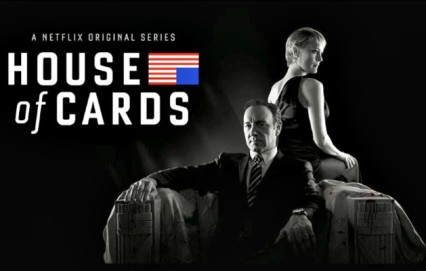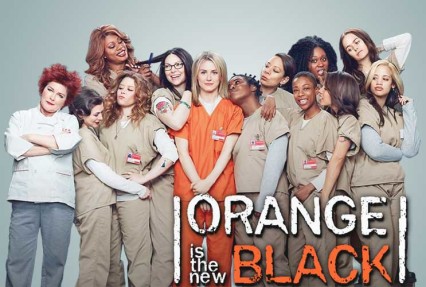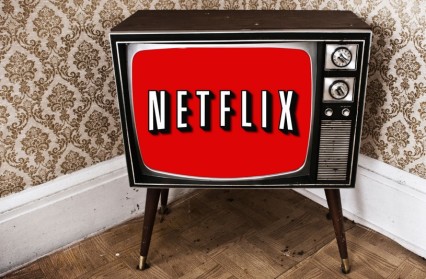On the 2nd of November 1982, television viewers of Britain sat back and collectively marvelled at the new and abundant choices on offer. Yes, from this moment on there would be no less than four whole terrestrial channels to choose from and the extra buttons on their TV didn’t seem quite so redundant. Not only was the fourth button now a commodity, but this so called Channel Four was different. This wasn’t a new BBC or ITV, furnished in classic sitcom soap light entertainment finery – oh no – this was for real… or four real (missed a trick there Four!). Channel Four was to be a haven for the forbidden, the off limits, the strange, fascinating, grotesque, beautiful, sensual, gay, straight, celebratory but rarely celibate, and it would broadcast swear words! Not just swear words but full frontal nudity. Not just the full frontal nudity people complain about, but also the full frontal nudity people don’t complain about! Women and men! Sometimes together at the same time! Britain didn’t know where to look, the world would never be the same, television in Britain was now a dangerous, unknown quantity and all the better for it. Hooray for Channel Four!
Fast forward the adverts to present day. The British television viewer no longer deals in channels, but TV is now dealt in packages. Differently priced packages, where what you can afford is what you see, as if the British class system has been reborn in viewing capabilities, no more are we all brought to the same level by the whole country sitting down to watch the Morecambe and Wise Show or The Generation Game, now we converse with those who can afford the same as us, pointing at the lonely bloke at the bar, whispering, “That prick’s not seen the fifth series of Game Of Thrones, what a loser.” No more will the whole of your town or city know the UK number one for Top Of The Pops no longer exists and Bryan Adams is semi-retired, we hope. No more will top A-list American movie stars appear in their Planet Hollywood t-shirts talking with likes of Michael Aspel and Terry Wogan, for these are not the only outlets for promotion and a one stop shop press junket will be broadcast on hundreds of satellite channels at the same time and, perhaps more importantly, controlled in direction by sharp clawed PR assistants who carve up the likes of Krishnan Guru-Murthy before they even think about breakfast. So, as the price of the TV we invite into our homes increases, it could be argued that content has decreased in interest. Now we pay and pay and pay and soak up reams of nothingness in a vain attempt to find something. The television is simply a background ambience to rooms full of people idly scrolling through Facebook, searching for less than is actually on the TV but appealing to the part of human nature which would prefer to educate itself with relationship updates and gossip than actually educate itself.
The question is are all these hundreds of channel choices superfluous when really the traditional TV viewer requires focus? How to return that focus? The answer is choice. In 1997, Marc Randolph and Reed Hastings started Netflix in California. Initially started because Randolph was fined by Blockbuster after returning a Tom Hanks film ridiculously late, he came up with the idea of a monthly charge, a flat fee to visit a catalogue of films that could satisfy the renter as and when, the customer choosing to compile a list of films and watch them at their leisure – choice. In 2000, Blockbuster were offered Netflix for $50 million, they declined, they don’t exist anymore.
The first part of the real revolution of Netflix begins when they start streaming films. With the advent of affordable tools like Chromecast, Netflix can be beamed directly to your lavish 50 inch widescreen TV, hundreds of viewing opportunities streamed in HD straight to the screen, this is the viewer as programmer – choice. The choice to programme whatever film you like, when the mood might take you, not when the mood takes programmers.
 The choice on British Netflix isn’t as vast as its American counterpart, but it is still impressive and gives the access to some wonderful obscurities for a reasonable monthly charge. They seem to have the rights to much of the Cannon films catalogue, which in itself allows you to delve deeply into numerous eighties classics – you really haven’t lived until you’ve seen Death Wish 3 or Christopher Walken in the titular role of Puss In Boots. Fancy a theme night? How about screening some James Bond without it being a Bond film? Sean Connery in the box office disaster but excellent The Molly Maguires from 1970. Or Timothy Dalton in Robert Fuest’s atmospheric and unforgettable Wuthering Heights from the same year. Or Pierce Brosnan proving he could’ve handled the ramped up violence of the recent Bond films in the underrated action thriller The November Man. Or see Daniel Craig in one of the only post-Trainspotting Brit crime flicks worth watching, Layer Cake, or the devastating Defiance; then tune in effortlessly to see Roger Moore in… um… Spice World. Now that is choice!
The choice on British Netflix isn’t as vast as its American counterpart, but it is still impressive and gives the access to some wonderful obscurities for a reasonable monthly charge. They seem to have the rights to much of the Cannon films catalogue, which in itself allows you to delve deeply into numerous eighties classics – you really haven’t lived until you’ve seen Death Wish 3 or Christopher Walken in the titular role of Puss In Boots. Fancy a theme night? How about screening some James Bond without it being a Bond film? Sean Connery in the box office disaster but excellent The Molly Maguires from 1970. Or Timothy Dalton in Robert Fuest’s atmospheric and unforgettable Wuthering Heights from the same year. Or Pierce Brosnan proving he could’ve handled the ramped up violence of the recent Bond films in the underrated action thriller The November Man. Or see Daniel Craig in one of the only post-Trainspotting Brit crime flicks worth watching, Layer Cake, or the devastating Defiance; then tune in effortlessly to see Roger Moore in… um… Spice World. Now that is choice!
The second part of the revolution came in March 2011, when Netflix started to produce original programming. This is the real turning point and where television channels, especially terrestrial channels, start shitting themselves. The BBC, for instance, shouldn’t really consider themselves even in the running for entertainment – whereas their current affairs broadcasting is still a world leader, they fill their entertainment slots with cheap mindless programming like Strictly Come Dancing and The Voice.
A much more pertinent comparison would be to look at Marvel Comics programming on Netflix and Fox. On announcing that they would be making programmes for Netflix, a Marvel spokesperson commented that it would allow them to produce more violent and sexually explicit programmes than TV censorship would allow. So, whereas Fox’s Agent Carter looks like a more glossy and sophisticated show than Netflix’s Marvel series, it is actually a much more insipid and uninspiring experience than, say, Daredevil which is a more gritty, exciting, realistic, violent expose of the life of a superhero than censorship challenged terrestrial TV could hope to show.
Censorship is one thing, but the advent of Netflix original programmes makes you wonder if censorship covers imagination and the ability to round characters off into more than just caricatures.
 Take for example the quite rightly world wide phenomenon that is Orange Is The New Black. Here we are taken inside a women’s prison to follow the trials and tribulations of the inmates, cleverly juxtaposing their previous lives with their lives inside. It is a purely dramatic, well-written, genuinely funny and engaging piece of television and something you wonder why terrestrial channels didn’t jump at the chance to make. Here seems to be that fundamental difference between Netflix and the terrestrial channels, the women in orange are not written down to a base product; women are not reduced to air headed shoe fetishisers, or dowdy female detectives with a man-chip on their shoulder. Rather they are well-rounded, thoughtful characters with complex drives and ambitions even in their confinement, with real needs, ideas, thoughts, ugliness, beauty, anger, love, frustration and joy. They are humans.
Take for example the quite rightly world wide phenomenon that is Orange Is The New Black. Here we are taken inside a women’s prison to follow the trials and tribulations of the inmates, cleverly juxtaposing their previous lives with their lives inside. It is a purely dramatic, well-written, genuinely funny and engaging piece of television and something you wonder why terrestrial channels didn’t jump at the chance to make. Here seems to be that fundamental difference between Netflix and the terrestrial channels, the women in orange are not written down to a base product; women are not reduced to air headed shoe fetishisers, or dowdy female detectives with a man-chip on their shoulder. Rather they are well-rounded, thoughtful characters with complex drives and ambitions even in their confinement, with real needs, ideas, thoughts, ugliness, beauty, anger, love, frustration and joy. They are humans.
Now let me back track slightly, for the BBC has broadcast one of the best dramas of recent times in the shape of Peaky Blinders, a superbly acted and well written gangster epic that is unusual in its high quality. This is, of course, produced by independent companies and, as such, is free to have a life outside of the BBC and, sure enough, the first series is available on Netflix, along with Channel Five’s interesting but inessential Gotham. So, if you can wait Netflix could be the place you enjoy these series, without waiting week after week for each episode, watching when you have the time in your increasingly full lives. And how long will it be until these popular shows make their way straight to Netflix, and bypass the terrestrial giants altogether?
It is, of course, too early to see Netflix as the new TV – they report drops and increases in membership all the time. And then there’s still Sky’s Game Of Thrones which has experienced an unprecedented viewership. But Netflix is improving all the time, and they and Amazon have begun to make impressive, challenging television that, for the most part, our traditional terrestrial channels seem incapable of getting right. Whatever it may be, Netflix and it’s ilk have put focus and choice in the hands of the viewer with a look to the past and a look to the future all at the same time.











